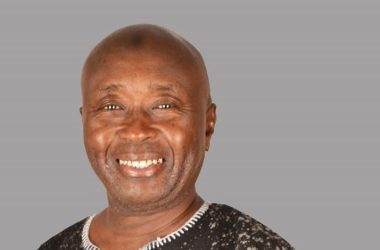 By Gambian Outsider!
By Gambian Outsider!
Note: Any word, sentence or paragraph underlined or underlined and highlighted is meant to draw your attention to the points being made. So, I am not yelling!
THE ATTORNEY GENERAL AND THE PROBABLE MAKING OF A SHAM!
On November 27, 2017, The Attorney General of the Ministry of Justice in the Gambia graced audiences with some of his legal wisdom after the Supreme Court struck down a challenge to the constitutionality of Section 5(2) of the Public order Act (“POA”). The AG said that, “The Supreme Court ruled that the provisions of the POA are constitutional.” And that, “As of now the provisions remain in force in this country.” He then got into a short lecture on the Rule of Law that “ when we speak about respect for the Rule of Law that means accepting that the Judiciary is independent and that we are totally committed to its independence …” Exactly what is going on here? “Something is rotten in the state of Denmark,” as the Bard famously put it through the mouth of Marcellus in his play “Hamlet.”
Mr. Ousainou Darboe, the leader of the United Democratic Party (“UDP”) was arrested last year for allegedly demonstrating without a permit. The reason for that demonstration is common knowledge. Mr. Darboe was charged for violating Section 5(2) of the POA among other things. He was illegally found guilty and sent to jail. Either before being sentence to jail or after, Mr. Darboe and Co initiated a petition to challenge section 5(2) of the POA. That challenge was decided on November 27, 2017.
When Mr. Darboe and Co initiated that petition to challenge Section 5(2) of the POA, they were then the party designated as the Petitioners and the former regime was the party designated the Respondents. The Petitioners asked the Supreme Court to declare section 5(2) of the POA unconstitutional. On the other hand, the former regime was interested in having the same provision declared constitutional, so that it could maintain the status quo, and thereby continue using the law to stifle a constitutional right to assemble and demonstrate peaceably. Since there has been a change of regime, and those who were the petitioners in that case are now in power, the question now is who were the Petitioners and who the Respondents in the case decided by the Supreme Court on November 27, 2017? Certainly, those who were Petitioners when the petition was initially filed are not, I hope, now the Respondents in the recently decided case. A few possibilities:
(1) Mr. Darboe and Co as initial petitioners maintained the same position in the recently decided case and the current regime, the AG’s office took the position of the former regime.
(2) Mr. Darboe and Co shifted to the other side and are now Respondents in the petition. A possible reason being that, they are now in power and may have interest in maintaining the status quo. Then who was the “new” petitioner who argued for the unconstitutionality of Section 5(2) of the POA?
(3) There were no petitioners at all when the Supreme Court decided the case.
Let’s take look at the three possibilities one after the other shall we!
Possibility number 1: If Mr. Darboe and Co maintained their petitioner status, this means they went to court against the very government that they are a part of. If that is what happened then who were the Respondents since those who represented the former regime in court are no longer in power to defend the constitutionality of Section 5(2) of the POA. If the current AG’s office were the Respondents in the case then the AG must be in favor of having Section 5(2) of the POA in place or else why would his office defend the law in court.
Again, if Mr. Darboe and Co maintained their petitioner status then the question is why would Mr. Darboe and Co do such a thing knowing that there was a likelihood that they risk having their petition denied. The only plausible answer is that if Mr. Darboe and Co maintained their petitioner status and went forward with their challenge against the government that they are key players in, because they now are in favor of Section 5(2) of the POA and knew in advance or have reason to believe that the case would be decided in the current regime’s favor and thereby it would be a win-win situation for them. That would mean Mr. Darboe and Co believed Section 5(2) of the POA to have been unconstitutional when they were not in power and now that they are in power, the unconstitutionality of Section 5(2) of the POA have disappeared into thin air.
If, on the other hand, both Mr. Darboe and Co and the current regime deem section 5(2) of the POA unconstitutional as they have portrayed it to Gambians, then who argued for the constitutionality of the provision?
No one did and therefore the challenge needed to have been withdrawn or dismissed by the Supreme Court because no one was challenging it. Why was it not withdrawn? If they have withdrawn the challenge to the unconstitutionality of Section 5(2) of the POA, then they would have NO EXCUSE to have the law in place. Why? Because they are in power and control both the Executive Branch and the Legislative Branch and there would then be no excuse not to amend Section 5(2) of the POA.
Mr. Darboe and Co and this regime could have withdraw the petition and sponsor a bill in the legislature to have Section 5(2) of the POA amended and they would have achieved that objective because they are in the majority at the National Assembly and they also control the Executive Branch. Even if the Supreme Court had dismissed the case for lack of a controversy, I will get to that in a moment, the door would still be open to go through the legislative process. But why did they not withdraw the petition or why the Supreme Court did not dismissed the petition for lack of a controversy if that was the case?
Because they want the law in place but do not want Gambians to know that they prefer the law to be in place just as it has been in the former regime. So the only way for them to keep the law in place and at the same time avoid the outrage from most Gambians who believe the law is unconstitutional and needs to be amended, was for them to leave the petition on the docket and have the Supreme Court declare the law constitutional. In that case, they take COVER under the Supreme Court’s ruling. It is like saying it is not on us but the Supreme Court and “we” need to respect the Supreme Court’s decision. Isn’t that what the Attorney General said in his speech?
In my opinion, that is what I believe to have happened. This may have been the reason why on November 27, 2017, the AG went on the air and made the announce that the Supreme Court have ruled that Section 5(2) of POA is not inconsistent with Section 25(d) of the Constitution and as respecters of the Rule of Law we need to be consistent and respect the decision of the Court. I leave this one to you readers to research and find out who argued for what side in court and why.
Possibility number 2: if Mr. Darboe and Co changed positions from Petitioner status to Respondent status then the case became moot unless there were new challengers who took their place as petitioners or filed a new petition challenging the constitutionality of Section 5(2) of the POA. If that did not happened, then who were those on the other side of the case?
In Common Law jurisdictions, in every case the party on one side of the “V” must be different from the party on the other side of the “V”. Mr. Darboe and Co cannot be on both sides of the “V” and so too, the current regime. I do not see the requirement of “Case – or -Controversy” in the Gambia Constitution, but in the United States, a court cannot decide a case if there is no case – or – controversy. Under the doctrine of case – or – controversy, in each case there must be a plaintiff and a defendant who are not the same person; or a prosecutor and a defendant who are not the same party; or a petitioner and Respondent who are not the same party. Where there is no such thing, if a court decides a case, its decision is an “advisory opinion” and nonbinding.
Black’s Law Dictionary defines Advisory Opinion as: (“1) nonbinding statement by a court of its interpretation of the law on a matter submitted for that purpose. Federal Courts are constitutionally prohibited from issuing advisory opinions by the case – or – controversy requirement, but other courts, such as the International Court of Justice, render them routinely.”
It is a fact that both the Chief Justice and the AG have worked in some fashion under some tribunals of the International Court of justice so if the Supreme Court employed procedures of the International Court of Justice to decide a case in The Gambia when there is no true petitioner and no true Respondent then its decision is nonbinding. The Supreme Court being the highest court of a sovereign state, The Gambia, must operate under the country’s laws when a case concerns the laws of The Gambia.
Just how does the International Court of Justice get to make advisory opinions? The International Court of Justice (ICJ) has two main functions:
- To settle, in accordance with international law, legal disputes submitted by States,
- Called contentious cases;
- Can issue court orders and judgments;
- Individual judges or groups of judges may write separate or dissenting opinions;
- There may be both written and oral proceedings;
- To give advisory opinions on legal questions referred to it by authorized UN organs and specialized agencies,
- Called advisory proceedings;
- Can issue court orders and advisory opinions;
- Individual judges or groups of judges can also write separate or dissenting opinions;
[ If anyone is interested to learn more about The International Court of Justice and Advisory Opinions, visit the UN research website ].
As is clear, the International Court of Justice does not give advisory opinions unless legal questions are referred to it by authorized UN organs and specialized agencies. Hence International Court of Justice procedures cannot be used in Gambian courts. In the Darboe and Co case, The Gambia was NOT an authorized UN organ or a specialized agency. The Gambia is a sovereign state with its own procedures within its jurisdiction. Unless there is a rule in the laws of The Gambia that courts can decide cases when there is no true dispute between two parties with opposing interest, the Supreme Court’s decision is an advisory opinion and nonbinding.
Possibility number 3: If there were no petitioners at all then the same result as in possibility number 2 ensues. If either possibility number 2 or 3 is what happened, then this regime, the Attorney General, The “New” Supreme “Gambianisation” Court are all frauds. The decision on November 27, 2017 was then a big SHAM!
The new regime and the AG are frauds because they are now in favor of a law that they were against when they were not in power and now that they are in power, they are in favor of it.
The fact remains that Section 5(2) has not been amended since the new regime came to power. The provision has not changed itself since the current regime came to power. It is the same law as it was when the former regime was in power. So if the new regime now favors Section 5(2) of the POA, it is because they are now in power and were against it when they were not in power. Majority of Gambians know what has been the effects of Section 5(2) of the POA as it has been and is enforced today.
The entire proceeding of this case should be in the public domain, and Gambians, especially journalists should have access to the records of this case to find out what happened. I challenge all Gambian journalists both home and in the Diaspora to look into the records of this case from the initial petition filed to the Supreme Court’s decision on November 27, 2017. We need to know who were the Petitioners and who argued for them? Who were the Respondents and who argued for them? Please make sure that whatever you find out have it published it for all to see.
If the AG’s office argued for the Respondents’ side then that press conference he gave on November 27, 2017 was a farce. It would mean that while the AG was preaching respect for the Rule of Law, he was in fact glad that the Supreme Court ruled that section 5(2) POA was not inconsistent with Section 25(d) of the Constitution.





The decision to uphold the POA is disturbing and indeed a sham and insult to the intelligence of all Gambians. First common sense should have dictated that Darboe can no longer remain a Petitioner and at the same time a Respondent by proxy because of his position in this administration. Bah Tambadou should have informed him of the peril and conflict. Now that this administration has chosen to be on the wrong side of history and taken this hugely unpopular position, one can only assume to be able to restore a systematic oppressive environment towards real and perceived political enemies or opponents, how do they explain this to our people. Certainly Bah Tambedou attempt to lecture us on the rule of law is at best ineffective, frankly nonsensical. Don’t understand why people keep repeating poor decisions after poor decisions. Just don’t get it. Allah help us. This is very disappointing. Truly a bad day for Gambia.
There seems to be something odd and fishy going on with the POA. I think the possibility that positions held in opposition about the POA might now have changed, now that the opposition is in government, does seem quite plausible.
How else could the continued enforcement of the POA be explained?Why didn’t this government rush a bill through the National Assembly to amend the relevant section (5 (2)), if they “hate” it so much? If indeed, the government has had a change of position and wants to keep this part of the act, hiding behind the Supreme Court to achieve it would be an act of extreme cowardice and deception.
Whatever their position is in relation to section 5 (2) of the POA, we must be vigilant and make sure the new constitution does not carry similar provisions that could curtail enshrined and guaranteed rights of citizens.